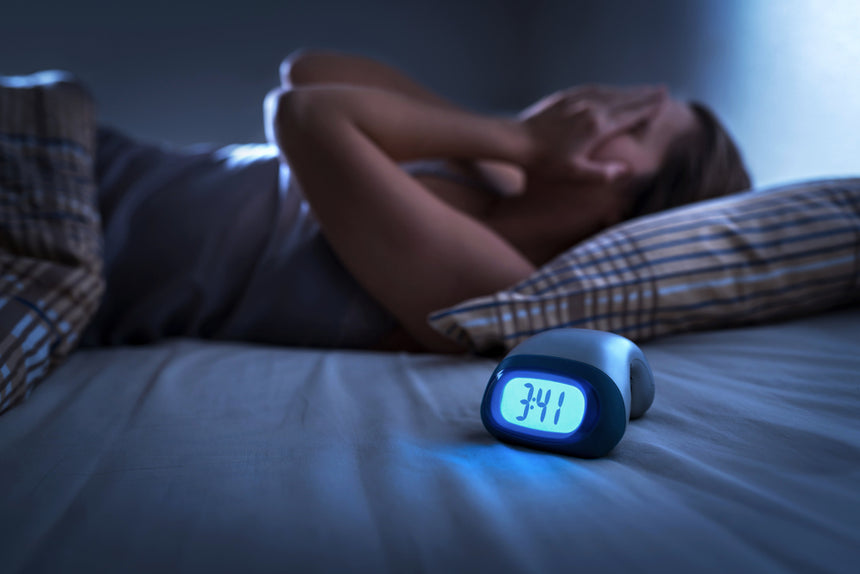How A Poor Night’s Sleep Affects Your Brain
Want to know one of the most effective ways to improve your memory, work performance, focus, and mental clarity?
Get a full night’s sleep.
We’re not joking! Sleeping the recommended 7-9 hours each night plays a big role in how your brain functions.
Poor night of sleep? Well, you’ll definitely feel the difference. Your brain and body need sleep to function optimally. In fact, a poor night’s sleep, or a night of interrupted sleep can be detrimental to not only how you feel the next day, but how your brain functions.
Here are the ways a poor night’s sleep can impact your brain:
Memory
In order for you to make a memory, your brain needs to go through three functions: Acquisition, consolidation, and recall. Acquisition and recall occur when you’re awake learning new information and experiencing your life.
Researchers believe sleep is necessary for the consolidation phase, in which memories get stored. Long-term memories are stored in the hippocampus. During sleep, the hippocampus reviews and processes memories, and scientists believe the consolidation phase occurs with the strengthening of neural connections that occur during sleep.
Without enough sleep, your brain has difficulty soaking up the new information it got in the acquisition phase, and an even harder time recalling it later.
Some scientists also believe deep sleep, or slow-wave sleep is key to brain recuperation because synapses are allowed to rest. During the day, especially when we’re learning a lot, our brain and our brain’s synapses are constantly excited. If the brain is excited for too long without getting a break, learning (and therefore remembering) new information is difficult.
Scientists have found sleep can vastly improve your chances of remembering information and can improve memory quality. In a recent study, participants were asked to remember made-up worlds before a night’s sleep or before 12 hours of being awake. Those who slept were able to recall the words much better than those who remained awake.
Performance
Although that may seem counterintuitive, your brain is active as you sleep. Sleep helps the brain function quickly and retain information. Sleep helps galvanize brain cells, clear waste, and may make you smarter.
Without sleep, scientists have found we don’t make decisions very well. Our judgment becomes impaired—similar to brains after too much alcohol. Those who are chronically under-rested have a more difficult time doing their jobs. Night-shift workers are more at-risk for injuries and accidents.
Sleep makes everything work better—the brain, muscles, organs, you name it, sleep makes it function as it should.
Focus
Being able to focus on just one task takes a lot of brain power, especially if you work in a place with a lot of distractions.
In a recent study, participants were put in two groups. One was allowed to sleep for 7-8 hours, but the other was kept from sleeping for 24 hours. Both groups were then played two different stories in both ears. The participants were told to listen to just one of the stories. The group of people who slept normally were able to focus on just one of the stories much better than the sleep-deprived group.
Elevated cortisol levels, which occur because of stress, can be the cause of improper brain function and lack of focus. One of the best ways to regulate cortisol and reduce stress? You guessed it: sleep.
Mood
Over and over, studies have found those who don’t often get a full night’s sleep are more at risk for depression and anxiety.
Sleep deprivation, (even if it’s only partial), can put you in a bad mood. One study found those who only slept 4.5 hours of sleep each night reported they felt more sad, angry, and stressed than usual. When those same study participants were able to sleep a full night, they found their mood was much improved.
Although scientists aren’t exactly sure why a lack of sleep impacts mood, they suggest it’s because the area of the brain that regulates emotions gets disconnected from its usual function, therefore making it difficult to regulate anger.
Sleep Wins
If you’ve recently felt yourself slipping in your work performance, or just can’t seem to shake your bad mood, it might because you aren’t sleeping as much as you should. Do yourself a favor and make sleep a bigger priority in your life. You may have to give up a few hours of television or social media, but it will be well worth it.
